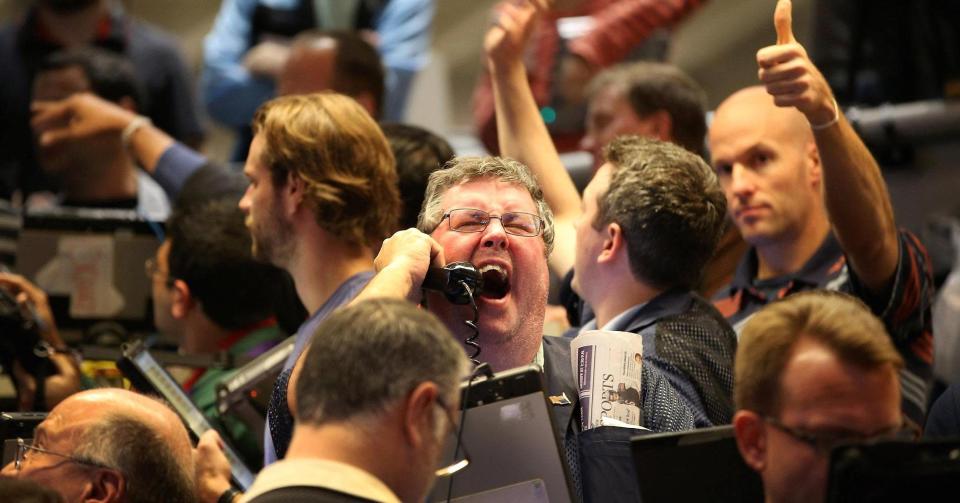Zero rate 'euphoria' has triggered a bond shock indicator

Stellar inflows into fixed income this week has caused one investment bank to warn of a "bond shock" in the coming months.
EPFR, a data firm that tracks investment fund flows, releases weekly data on Thursday evenings with Bank of America Merrill Lynch digesting the figures and giving its own take on a Friday. The bank was a little concerned this Friday after $6.6 billion of bond inflows in the last week.
"'Bond shock' remains key autumn risk given euphoric flows to assets tied to 'zero-rate' expectations," Michael Hartnett and Brian Leung, two strategists at the bank, said in a note Friday morning entitled "Not so fast, Mr. Bond".
Europe bond funds recorded inflows for the week, with geographically diversified funds attracting the bulk of the fresh money, according to EPFR. At the country level, Spanish bond funds posted their biggest inflow since the middle of the first quarter of 2015, it said.
Meanwhile, fund managers have increased their average allocation for Switzerland to a new high and kept France's weighting close to the seven-and-a-half-year record it hit in the second quarter of 2016, it added. These moves have led Hartnett and Leung to call bonds "the new stocks" with investors seeking "yield" in fixed income.
"There is no point shorting stocks when these three assets classes (investment grade, high yield and emerging market) debt are so well bid," they said.
However, the shock that could be on the horizon centers around U.S. Treasurys which they noted had seen six consecutive weeks of outflows. The analysts believe that a "taper tantrum II" remains a prime autumn risk for asset markets.
On May 22, 2013, the Federal Reserve 's policy minutes sparked fears the central bank could start tapering off its $85 billion-a-month bond purchasing program. This came to be known as the "taper tantrum," with emerging market (EM) currencies tumbling as investors started to bring their dollars back to the U.S. in anticipation of higher interest rates. Yields on 10-year benchmark U.S. Treasurys rose above 2 percent too and stock markets reeled as volatility spiked.
The Fed did eventually taper and performed one interest rate hike last year. However, 10-year yields are now back below 2 percent due to global growth concerns and easy monetary policy, with low interest rates, deployed by other global central banks. Sovereign bonds are seen as a safe haven and the yields have an inverse relationship to their prices.
Investors are expecting the Fed to hike rates again, perhaps before the end of the year, but this all adds to a very difficult picture for fixed income experts. The launch of a major quantitative easing program in the U.K. and a shift to more fiscal planning by the Japanese government has muddied the waters further.
While some market-watchers might still be buying, others remain skeptical that bond yields can dip even lower. Stephen Isaacs, the chairman of the investment committee at Alvine Capital and former director of fixed income trading and syndication at Credit Suisse, believes that fixed income has absolutely no value.
"I think monetary policy is a dead duck and I think bond yields at this level for investors represent absolutely no value and a huge amount of risk. What I would like to focus on is the coming fiscal reflationary trade because I think that is creeping out of the woodwork in many places," he told CNBC earlier this month.

 Yahoo Finance
Yahoo Finance 
